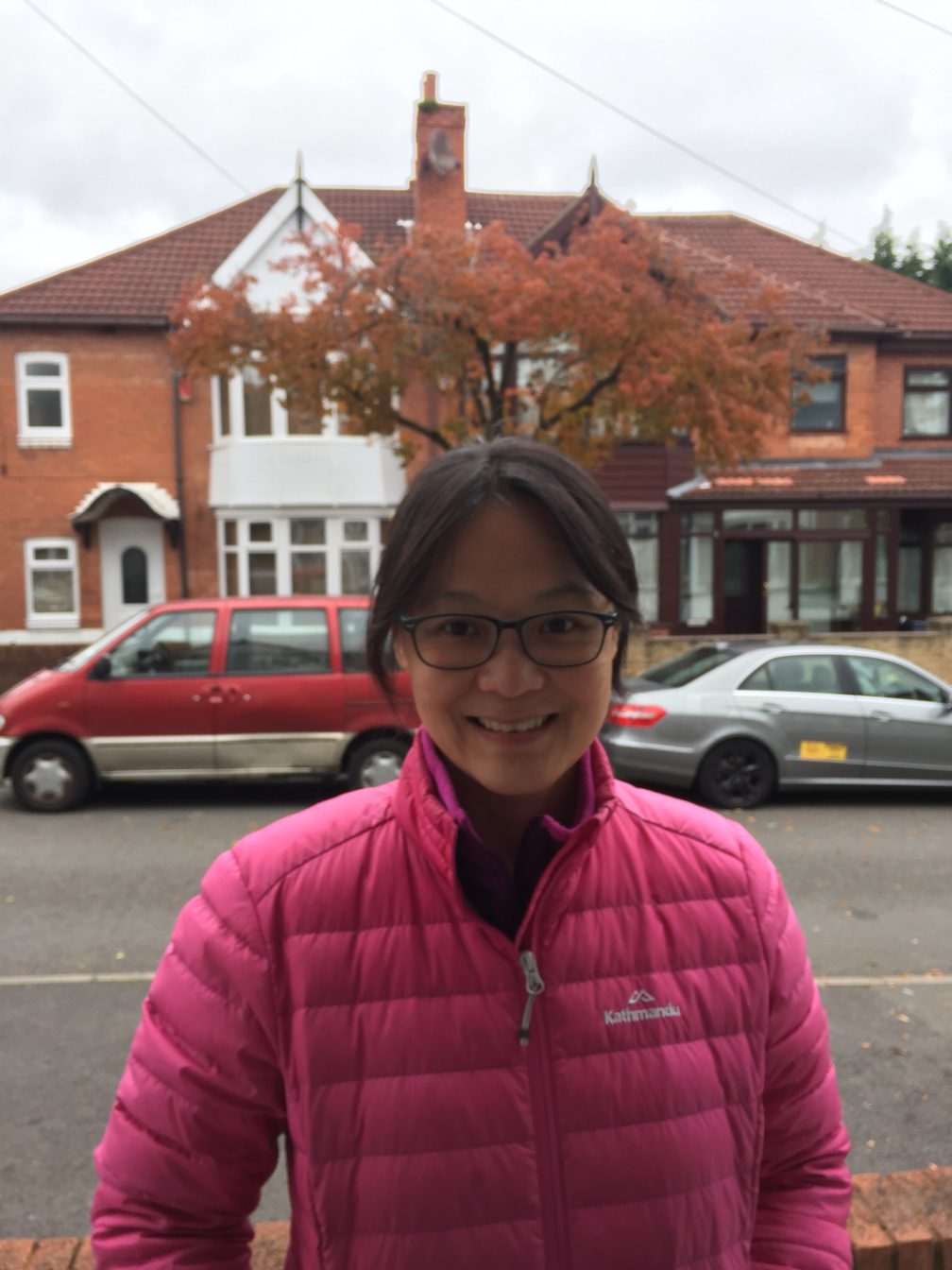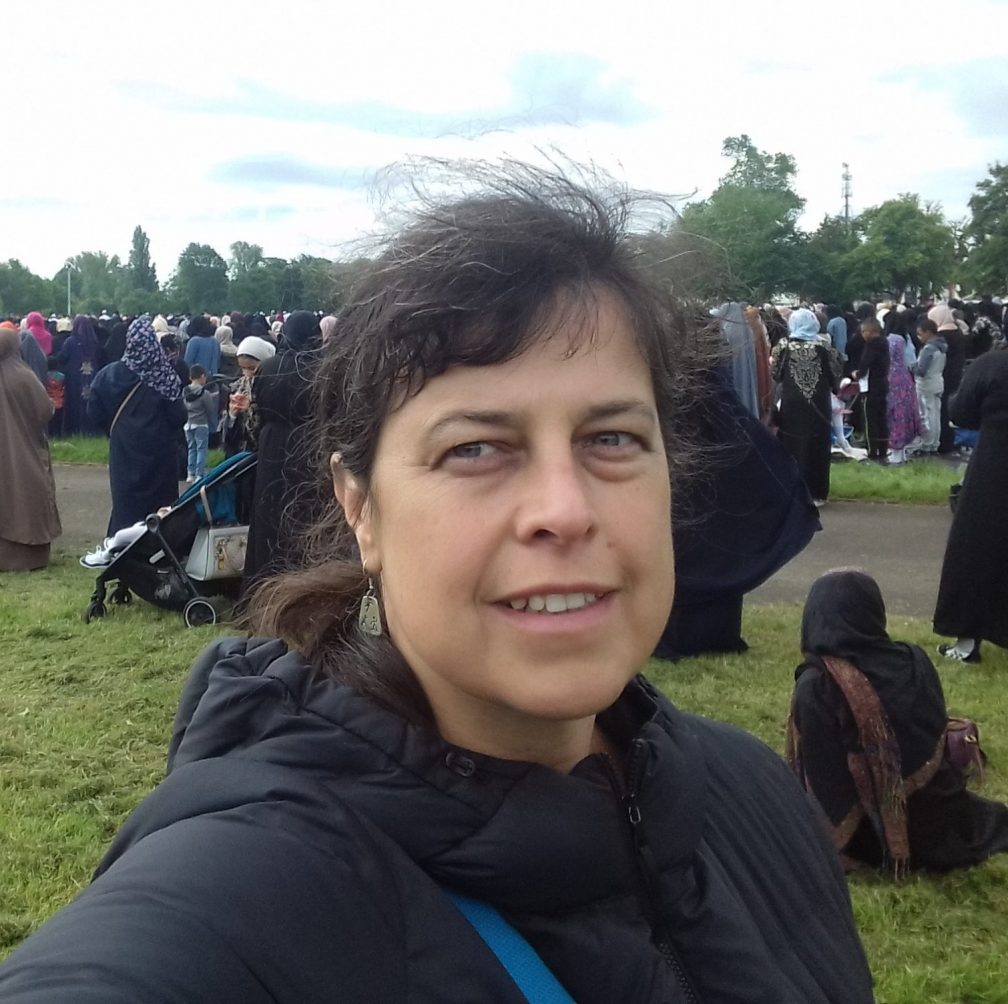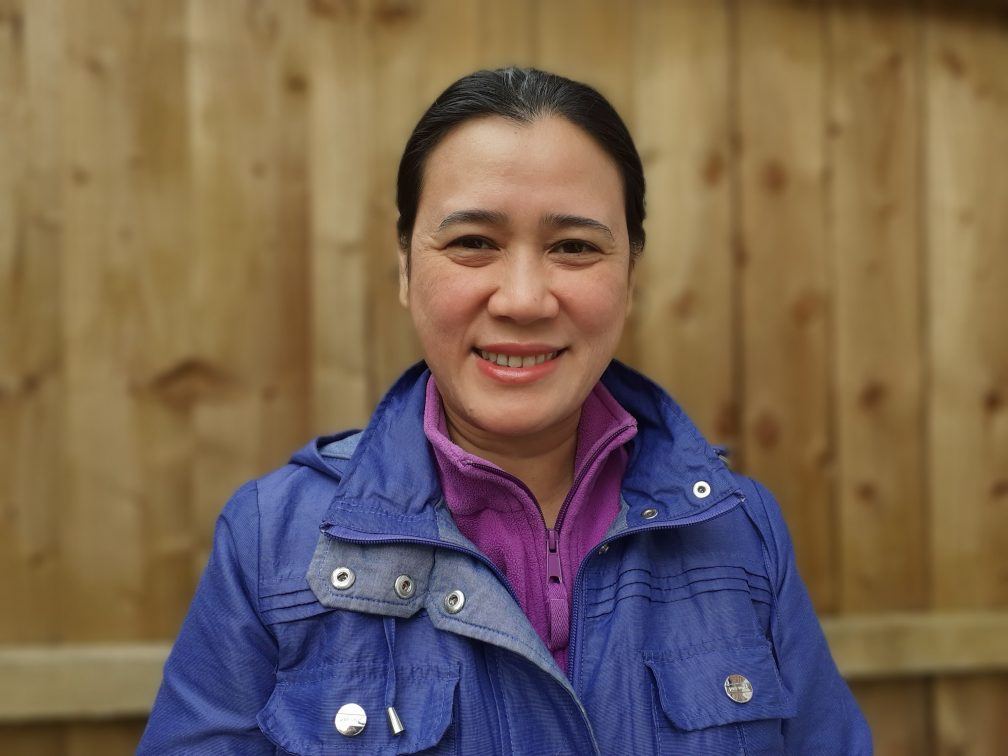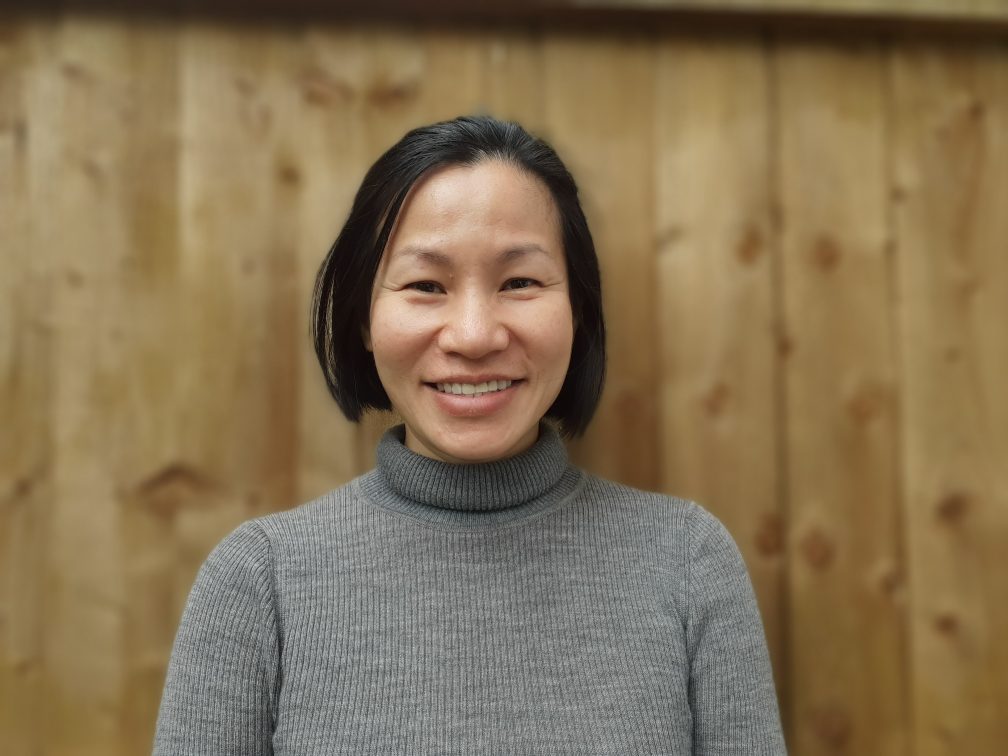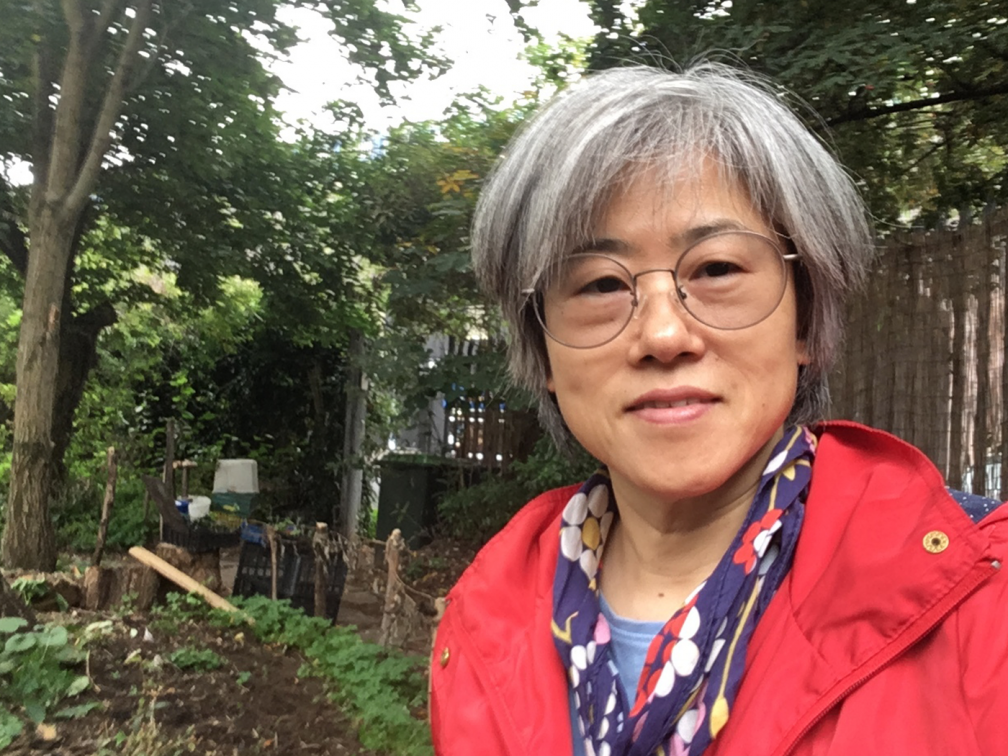Sophia Chee Tzu Ting
I found it quite overwhelming to see how critically ill our planet and our climate has become as a result of human activities. Society dreams to live in a modern world, and unfortunately this dream has resulted in mass consumption and a throw away culture. It is heart breaking to know that while our planet’s natural resources, given freely by God are being plundered, we are also confronted with the fact that some of our earthly companions, such as animals, fish, some plants and various organisms and species are facing extinction. In fact some have already gone forever. Sadly, while wealth is not being distributed equally among the rich and the poor, inclement weather impact has more devastating effect on the poor than the rich. The poor end up paying the price for the modern world’s lifestyle. It is time to ask ourselves ‘what kind of world are we leaving to the future generations?’ It is sadly true that ‘humanity has disappointed God’s expectation’ (Laudato Si’, 61).
Nevertheless, it is also comforting to know that millions of organisations and movements throughout the world have come together to stand for social and environment justice, raising awareness and working together with a collective will to change for the better. Speakers from various backgrounds, including indigenous elders, scientists, activists, researchers, politicians as well as Pope Francis, passionately talk about one common concern for our land, our planet and our future. I am convinced that not only can all living creatures on this planet earth in their own shape and form be separated from each other, but they are naturally interdependent and interconnected with each other too.
‘The Spirit of God has filled the universe with possibilities and therefore, from the very heart of things, something new can always emerge’ (Laudato Si’, 80). I have been made more aware of my duty and role to care for our environment and I am hopeful that in solidarity with this new universal calling, creation will spring forth in its own will and providence.
Nathalie Marytsch
With so much having happened around the globe recently with regards to the pandemic, and how this has affected communities, economies, the environment and much more, it is easy to fall into a default mode of ‘waiting’ for things to return to some form of normality. If anything, this health crisis has highlighted how interconnected we are, and how everyone has been uniquely affected by Coronavirus. The climate crisis can’t wait. Controlling the virus, we’ve been told by experts, requires communal efforts, and this can’t wait either.
The Going deeper into Laudato Si’ webinar was a great reminder of that connection between humanity and our common home earth. As Pope Francis says ‘communion with the rest of the world cannot be real if our hearts lack tenderness, compassion and concern for our fellow humans’ (Laudato Si’, 91). It is a reminder and a call to each one of us human beings that we need to develop a sense of social responsibility. ‘Whatever we do to the least of my brothers you do it to me’ as Jesus said. Whatever I discard and throwaway here is going to end up somewhere, and that somewhere, whether in landfill, on ships or sent to a recycling station, is going to affect somehow, the ecosystem and/or a community. Therefore, I must be alert to what I throw away and mindful that these actions are destroying or altering our communion with nature and our brothers and sisters.
Gertrudes Samson
The webinar emphasized the gravity of the climate crisis and the urgency to address it. The earth’s resources are finite yet we humans are exploiting them as if there is no tomorrow, with little regard for the coming generations. I was born and grew up with the understanding that we don’t just throw things away, instead when something is broken, we try to fix and repair it. Nowadays more and more people are in the habit of throwing away items and buying again and have become very much part of the ‘throwaway culture’. As discussed in the webinar, there is no such a thing as ‘throwing away’, because any place where things are thrown to are still on the face of Mother Earth and will still affect us all because we are interconnected. Too much demand and consumption of things have devastating effects on the earth’s resources and it is heart-breaking that those living in poorer countries, including my home country, the Philippines, are the ones that suffer the most from such things as mass deforestation, rampant mining, flash flooding, super typhoons, earthquakes, landslides and pollution. Laudato Si’ is trying to scream, ‘hear the cry of the earth and cry of the poor!’ As a whole human race we must act now for we are already racing against time. Whatever we are doing to care for the earth and the vulnerable, we must keep doing it and never waver. We must continue campaigning to educate and influence others too.
Besides appreciating the sense of urgency in responding to the climate crisis, I got a sense of affirmation from the webinar too. Columbans are already doing lots to support vulnerable people and the environment all over the world. It is great to hear that even the Vatican has acknowledged Columban JPIC work and identified us as a role model, even involving the society in the preparation of Laudato Si’! I think back to my orientation days when I first joined the Columban Mission programme and even before Laudato Si’ was published I was exposed to Columban efforts to support JPIC issues around the world. I learnt more about what it means to live sustainably through a visit to the Centre for Ecozoic Living and Learning (CELL) in the Philippines and through immersion with an indigenous tribe who were proud to live a successful sustainable way of life as a community. I am pleased to say this awareness and learning stuck with me and here at our lay mission house in Britain we observe seriously, waste segregation, and we practice ‘Reuse, Reduce, Recycle’. When we need things for the house we look first to buy it from charity shops or ask friends who often have spares they do not need or which are looking for new homes. We look for practical and creative ways in which to recycle and enjoy using recyclable materials in arts and crafts projects. We like to make pots for our cactus and succulents fund raising project from plastic bottles and containers. We also use clean scrap fabrics for our reusable face mask making ministry, a project that came about in response to pandemic and the government regulations to wear face coverings in public places. We’ve been able to protect vulnerable people who otherwise would find it difficult to purchase face coverings and have helped to protect the environment by reducing the waste created from the use of disposable face masks.
Towards the end of the webinar I got greater sense of hope in seeing that more and more people around the world are forming organisations and movements to address the urgent concern of the climate crisis and the effects on vulnerable communities globally. It gives me great comfort to know like minded organisations are continually growing and we are allied in our desire to protect the planet. Through our joint efforts I hope we can influence political leaders and those in strategic positions around the world to address the concerns of Mother Earth. May each of us pledge to do our bit in caring for the environment so that we have a sustainable world for future generations; a place where every human being can live life to the full. May God remain our source of hope and inspiration to keep caring for Mother Nature. As written in Isaiah 40:31 ‘Those who hope in the Lord will renew their strength. They will soar on wings like eagles; they will run and not grow weary; they will walk and not be faint.’
Teresa Chuah Hui Ling
The webinar was very eye-opening. It showed how deeply we rely on Mother Earth, our common home, and how we need nature to sustain us. We often forgot that nature is created for us, not that we are created for nature. We are the ones given the responsibility to take care of Mother Earth, yet our greediness to have more means we exploit its resources.
We are selfish in many ways of wanting to have luxurious lifestyles, indulging in wanting to have more and to have new things. We strive to have the best materialistic things and this creates a ‘throwaway’ culture. We have little regard for the dirty and messiness of the environment we are living in. Sadly, we don’t even think of how our actions impact the poor and vulnerable. We are the ones destroying them and their homes slowly.
Short videos were used to help deliver the message of Laudato Si’ which highlights the importance of the cry of the poor and the damage we are doing to the earth. We are all responsible for the climate crisis and we each have a part to play in caring for the environment. We do more talking than action.. it’s time to take action here and now.
Roberta Kim
We were invited to make an eco-conversion and make a new start to change our lifestyles for the good of our common home. To protect our planet, we need a common plan. We need to work together. Maybe that’s why after Laudato Si’ Pope Francis published ‘Let us Dream: The Path to a Better Future’. I found the webinar very interesting and thought-provoking and I hope there will be another virtual workshop soon to explore ‘Let us Dream’.

